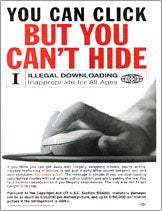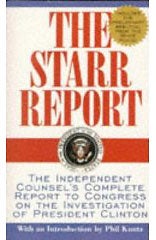Top 10 Internet Scandals of All Time
The Web is a great way to deliver information, but it's also a great way to expose, spread, or jump-start a scandal.
Dan Tynan, PC World
A United States senator once said it, so it must be true: The Internet isn't a dump truck, it's a series of tubes. And many a reputation has gone swirling down those tubes, thanks to the Net's ability to expose scoundrels, scalawags, liars, cheats, and fools--and then broadcast the scandal to a billion glowing screens.
The Net's biggest scandals are nothing if not democratic, touching everyone from the most ordinary individuals to the highest office in the land. Not everyone deserved the notoriety. Some were hapless victims of privacy breaches; others were exposed by hackers or misguided crusaders. But in almost every case, somebody ended up getting fired, sued, or mortally embarrassed.
Here then, in descending order, are our picks for the 10 all-time biggest scandals on the Internet.
10. Don't Ask, Don't Tell--And Don't Tell AOL

AOL first denied outing McVeigh, then apologized for violating its own privacy policy, and then criticized the Navy for "tricking" its employee by pretending to be a friend of McVeigh's.
When the Navy accused the 17-year veteran of violating the military's "don't ask, don't tell" policy and tried to discharge him, McVeigh sued. After a judge ruled in his favor, McVeigh was allowed to retire as a master chief petty officer, the rank he would have attained had AOL not spilled the beans in the first place.
9. The Rootkit of All Evil

The scandal snowballed, as other bloggers weighed in and the mainstream media picked up the story. At first Sony denied that its copy-protection software had turned half a million PCs into hacker's toys. It then issued "fixes" that didn't work, and finally it relented to public pressure and offered to help users uninstall the kit and replace their CDs. By then, the company's reputation was as damaged as its customers' hard drives.
8. Sex-Video Scandal #387 in a Series

7. 'I Sue Dead People'

Twelve-year-old honor students, dead grandmothers, computerless families, and thousands of John Does are among the 18,000 U.S. consumers sued so far. The upshot: File sharing is continuing, CD sales are dwindling, and legal downloads are climbing. And the RIAA and MPAA are tied for second place as the Dilbert Awards' Weaseliest Organizations of 2006.
6. The Not-So-Secret Service
In October 2004, Paris Hilton's T-Mobile Sidekick account was hacked by 21-year old Nicholas Jacobsen, who shared her private photos and address book across the Net. No big deal; by that time thousands of Netizens had already seen as much of Paris as is possible to see without the aid of medical equipment (see scandal number 8).
The real scandal was who else got hacked in the same exploit: U.S. Secret Service agent Peter Cavicchia, who happened to be investigating Jacobsen at the time. Jacobsen produced memos that Cavicchia had e-mailed regarding ongoing investigations of Russian cybercrooks. In February 2006, Jacobsen pleaded guilty to one count of hacking, was fined $10,000, and was sentenced to a year of home detention. By then, Cavicchia had already turned in his badge. Though the Secret Service says he should not have been using his personal device for work, Cavicchia said he resigned on his own and was not asked to leave the agency.
5. Scandalous Feats

For a time Freck spurred debate among Netizens: Should someone be allowed to mutilate themselves solely for money and a sick kind of fame? But the cut-off date came and went, and Freck's feet were still attached. Like OurFirstTime.com, where Webpreneur Ken Tipton boasted he would show two virgins deflowering each other on the Web, or Manbeef.com, which claimed to sell human flesh for consumption, CutOffMyFeet.com proved to be just another well-played hoax. In the end, Freck didn't have a leg to stand on. Or maybe he just got cold feet.
4. The China Syndrome

But Google declined to roll out Chinese versions of Blogger or Gmail, hoping to avoid the scandal that Yahoo brought upon itself when it turned over subscriber e-mail to the Chinese authorities, an action that resulted in the arrests of three dissidents. In late 2005, Microsoft voluntarily removed the blog of an outspoken Chinese journalist from MSN Spaces. Cisco has also come under fire for selling China the equipment to carefully filter Internet access for its 132 million Netizens. Rather than get cut out of the world's largest emerging market, these firms decided to hold their noses and take the money.
3. Dan Rather Bids a Font Farewell

Instead of focusing on where W actually was when he was supposed to be serving with the National Guard in 1972, political bloggers immersed themselves in the arcana of typewriter fonts--and the mainstream media followed suit. Twelve days after airing the segment, Dan Rather publicly apologized for the story, saying he could not vouch for the documents' authenticity. A few months later, he quietly left CBS--with the inevitable "gate" permanently appended to his name.
2. A Real Page Turner

1. Monica-gate and Whitewater

The Lewinsky scandal put the Internet on hyperalert, drawing its attention to an ongoing and arguably bigger scandal called Whitewater. Without the influence of the Net, Whitewater might have been remembered as an endless investigation into obscure Arkansas real estate deals; instead it eventually led to the impeachment of our 42nd president.
The Net-wide distribution of the Starr Report in September 1998 was a fitting coda to the Clintonian soap opera. Along the way we all learned more than most of us wanted to know about blue dresses, cigars, thongs, and "that woman." But what's more scandalous: Frat boy sex shenanigans in the Oval Office? Or spending $40 million of taxpayer money for 445 pages of sordid details?
